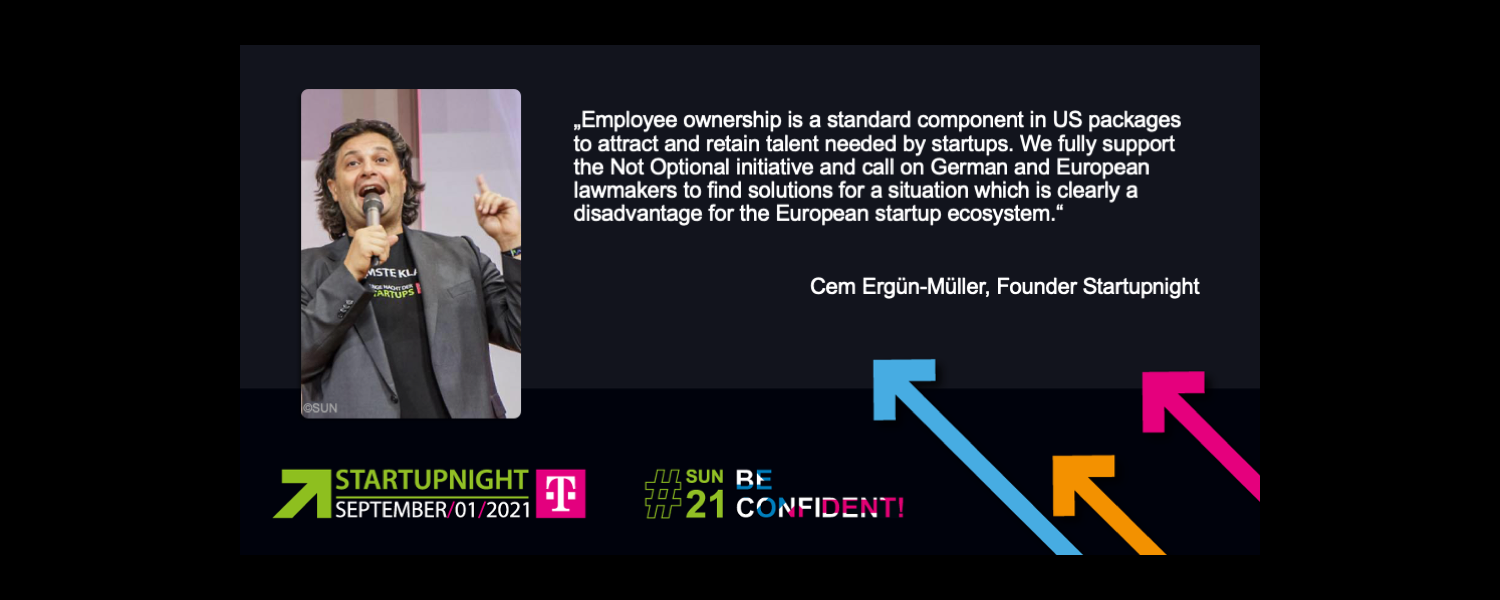Startupnight supports Not Optional initiative
Germany offers the second-worst conditions for employee ownership among 22 European countries
Today, the availability of talent, not the lack of capital, is the biggest bottleneck to growth of European startups. The Not Optional pledge calls for improvements of the conditions for stock options and employee ownership in Europe.
2021 has so far seen record volumes of investments flowing into European startups. In Germany alone, the amount of newly raised capital for startups tripled compared to the previous year, to a total of 7.6 billion euros. According to an analysis by EY, the number of financing rounds rose to 588, an increase of 62 percent. But at the same time it's becoming clear that increasingly the availability of talent is the biggest obstacle for growth on the continent.
Global demand for European talent
On one hand, Europe boasts excellent educational institutions which churn out a significant share of the world’s most promising software engineers, data scientists and designers. Alumni of these institutions are in global demand from the largest and most cash-rich corporations.
Startups in Europe are at a disadvantage since they cannot compete for this talent with salary and benefits alone. To compensate, they could offer employees a meaningful ownership stake, in the form of stock options – rewarding the risk employees take with a young unproven business with a promise of a payout should the startup succeed.
Employee ownership
While employee ownership is a standard component in US packages to attract and retain talent needed by startups with limited cash, but near limitless potential, in Europe it is offered inconsistently and at far lower levels. According to the Not Optional initiative, which was founded by Index Ventures alongside some of Europe’s leading entrepreneurs, employees of US startups own twice as much of the companies they work for compared to their European counterparts.
The initiative compiled a ranking to compare the situation in 20 European and 4 Non-European countries. The situation in Germany in particular, even after some adjustments by the federal government in 2020, is dismal. The country offers the second-worst conditions among the countries examined, with only Belgium scoring worse.
The problem in Germany is the timing of when stock options are being assessed by the tax office, which already wants to see money when employees have just been granted the stock options, so they have no cash inflows yet.
Startupnight supports Not Optional initiative
We at Startupnight are convinced that some serious amendments to German tax law are needed to mitigate these problems, both on the national and the European level. We therefore fully support the Not Optional initiative and call on German and European lawmakers to find solutions for a situation which is clearly a disadvantage for the European startup ecosystem.




























































